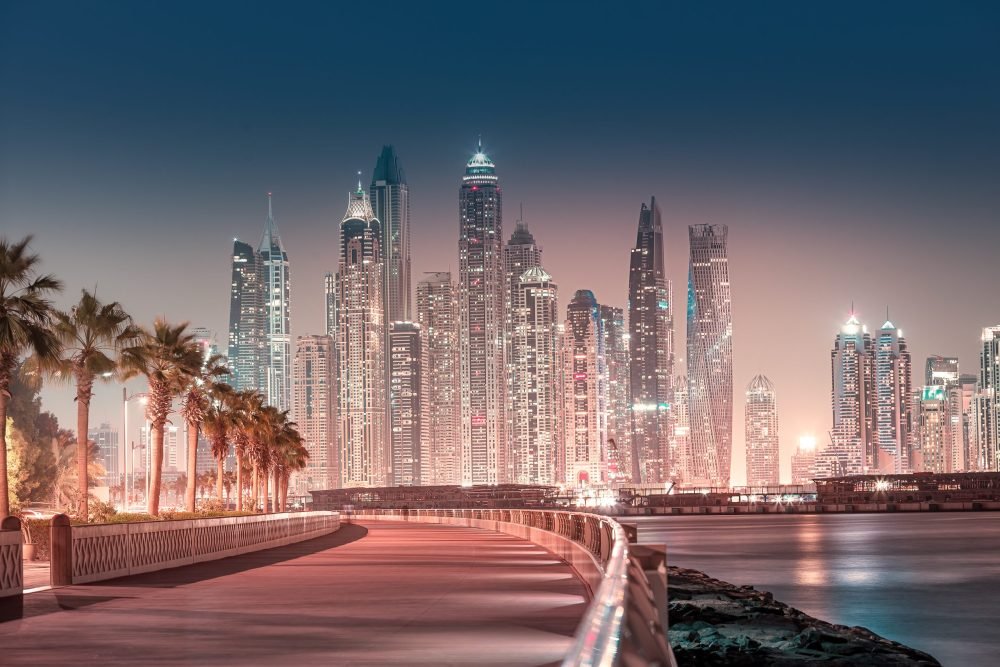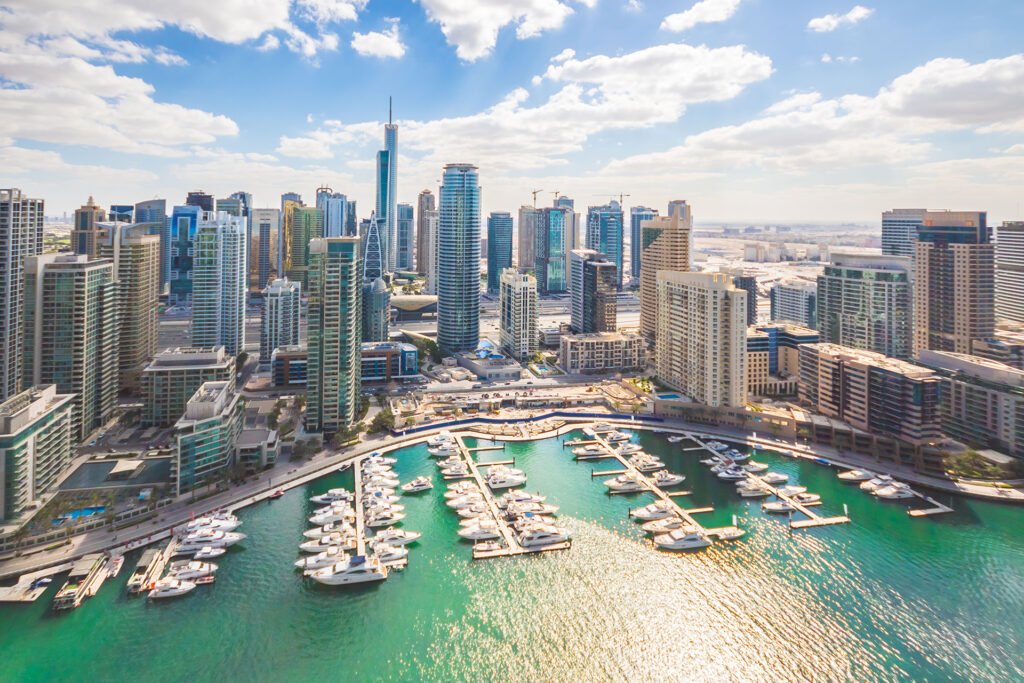
Dubai has evolved from a regional trading post into a global investment powerhouse. Over the past decade, its real estate market has transformed into one of the most attractive destinations for investors worldwide. With luxury developments, strategic reforms, and strong rental yields, Dubai continues to command the attention of international investors looking for profitable and secure opportunities.
This article explores how global investors perceive Dubai’s real estate market, what drives their confidence, and how the city’s property sector continues to outperform global standards.
Dubai’s real estate journey mirrors its broader economic evolution — fast-paced, visionary, and strategically global. From the early 2000s, when the first freehold properties opened to foreign ownership, the city has become a magnet for global wealth.
Investors from Europe, Asia, the Middle East, and even North America have been drawn by Dubai’s promise of growth, world-class infrastructure, and lifestyle appeal. The government’s consistent push for transparency, coupled with investor-friendly policies, has turned the emirate into one of the safest investment environments in the region.
Today, Dubai stands in the same league as global real estate giants like London, Singapore, and New York, yet offers significantly higher returns with relatively lower entry costs.
The reasons behind Dubai’s international investor appeal go far beyond luxury skyscrapers and glamorous lifestyles. Global investors view the market as a balanced mix of profitability, stability, and innovation.
Dubai consistently offers some of the highest rental returns worldwide. On average, yields range between 6% to 9%, while mature markets like London and New York hover around 2% to 4%. For investors, this gap represents a lucrative opportunity for both short-term rental income and long-term capital appreciation.
Dubai’s tax-free system remains one of its biggest attractions. With no property tax, capital gains tax, or income tax on rental income, investors retain a larger portion of their earnings — a rarity in most developed markets.
Dubai’s currency, the UAE Dirham, is pegged to the US Dollar, ensuring minimal exchange rate volatility. This stability offers reassurance to investors, particularly from countries where currencies are prone to fluctuations.
Situated at the crossroads of Europe, Asia, and Africa, Dubai is an international hub that connects investors to multiple continents. Its accessibility makes it not just a property investment but a global lifestyle gateway.
The UAE government has introduced a series of investor-friendly visa programs, including 10-year Golden Visas for property buyers meeting specific thresholds. These residency benefits add an emotional and practical layer of appeal to real estate investments.

Global investors value stability as much as returns. In recent years, Dubai has managed to position itself as one of the most resilient property markets in the world.
The government’s swift responses to economic challenges, proactive regulation through institutions like RERA (Real Estate Regulatory Agency), and the introduction of escrow accounts have created a transparent, investor-safe ecosystem.
Even during global downturns, Dubai’s real estate sector has demonstrated impressive recovery, supported by diversified demand sources and government-led infrastructure projects. This reputation for adaptability has made it a preferred market among risk-conscious international investors.
Dubai’s diversity in property types and locations offers something for every investor profile. Global investors are particularly drawn to areas that combine strong ROI potential with lifestyle advantages.
While investors from the UK, India, and Russia have historically dominated Dubai’s real estate scene, recent years have seen new demographics entering the market.
Buyers from China, Africa, and Europe are increasingly active, drawn by Dubai’s international business environment and stable returns. Tech entrepreneurs, digital nomads, and remote investors view Dubai properties as both investment assets and lifestyle hubs.
Additionally, the introduction of fractional ownership and digital real estate platforms has lowered entry barriers, allowing smaller global investors to participate in the market.
Modern investors value transparency and accessibility. Dubai has embraced technology to create a seamless and trustworthy real estate environment.
Government-backed platforms like the Dubai REST app provide real-time property data, ownership verification, and market trends — reducing dependency on intermediaries and minimizing risks of fraud.
Moreover, the integration of blockchain in property transactions and smart contracts has further strengthened investor confidence, ensuring clarity in ownership, transactions, and documentation.
Global investors are increasingly aligning their portfolios with sustainable and future-oriented assets. Dubai has been quick to respond to this shift, integrating green building standards, smart technologies, and energy-efficient designs in new developments.
Projects such as The Sustainable City and upcoming smart communities emphasize eco-friendly infrastructure, water conservation, and renewable energy use. These forward-looking initiatives appeal to socially conscious investors who prioritize environmental responsibility alongside profitability.
The luxury real estate segment in Dubai remains a standout attraction. In recent years, the emirate has recorded record-breaking transactions, with ultra-luxury villas and penthouses fetching multi-million-dollar prices.
High-net-worth investors from Europe, Asia, and the Middle East see Dubai’s luxury sector as a secure asset class that combines exclusivity with global recognition.
Factors such as privacy, world-class architecture, and premium amenities have positioned Dubai as one of the top five luxury property destinations globally — competing directly with Monaco, London, and Beverly Hills.
Dubai’s leadership has consistently shown commitment to maintaining a balanced and transparent property market. Key initiatives such as:
These measures ensure investor rights, prevent speculative bubbles, and reinforce Dubai’s reputation as a mature, well-regulated market.
While Dubai offers immense opportunities, global investors remain mindful of certain challenges.
However, Dubai’s proactive market regulation, diversification strategy, and tourism-led growth continue to offset these concerns in the long term.
The future of Dubai’s real estate market appears promising. With continued urban expansion, mega projects like Dubai Creek Harbour, and the evolution of new lifestyle communities, the city remains firmly positioned for long-term growth.
The upcoming years will likely see greater digitalization, increased foreign participation through REITs (Real Estate Investment Trusts), and integration of AI-driven property management solutions.
Moreover, Dubai’s vision to become a “Smart and Sustainable City” aligns perfectly with global investor sentiment focused on innovation and green investment.
In summary, global investors view Dubai’s real estate market as:
Dubai continues to redefine what modern real estate investment looks like. Its blend of luxury, opportunity, and resilience makes it not just a property destination, but a global phenomenon in wealth creation.

Global investors see Dubai as more than just a booming real estate market — they see it as a gateway to the future. With unmatched rental yields, a secure legal structure, tax benefits, and a visionary approach to urban development, Dubai stands as one of the world’s most compelling property investment destinations.
For investors seeking growth, security, and a cosmopolitan edge, Dubai real estate continues to offer something few other cities can — a perfect balance between lifestyle and long-term profitability.
Do Follow Estate Magazine on Instagram
Read More:- Dubai’s Innovative AI Strategies Changing Daily Life Rapidly 2025
